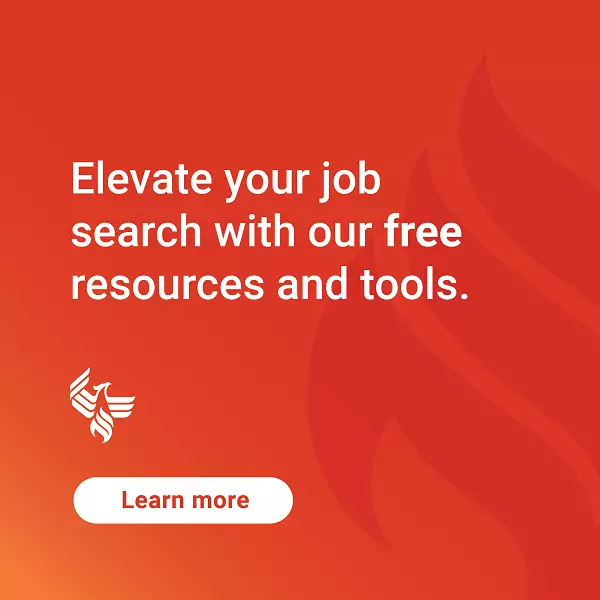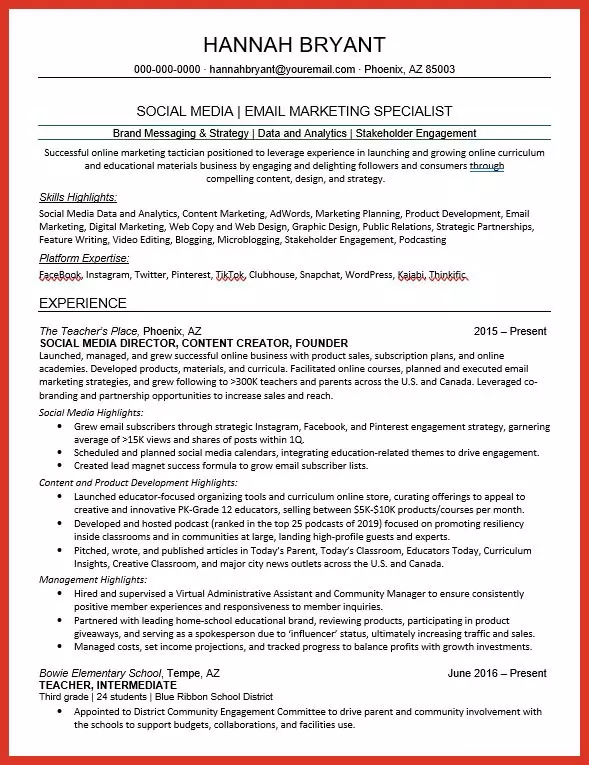Changing careers? Then change your resum├® too

If youŌĆÖre thinking about a career change, you probably need to change your resum├® too, especially if itŌĆÖs been a year or longer since you updated it. In todayŌĆÖs internet age, the look, feel and content of a resum├® have evolved. Most resum├® formats and resum├® templates are outdated or could hurt your job prospects in some way. You usually have only one chance to make an impression, so you want to make it a good one.
When it comes to highlighting transferable skills and experience in your new career-change resum├®, hereŌĆÖs where to start.
╠²
How to write a resum├® when you change careers
Before you start writing or rewriting a resum├®, do your homework on your next career field. Each industry or profession has its own norms and expectations when it comes to skills, experience and training.
For example, does the field that interests you prioritize experience or specific training courses that you should feature in your skills section?
Due diligence is key, according to Steven Starks, senior manager of career advising at SMĄ„Į╠╦∙. "Research online job postings to identify the knowledge and skills employers require," he says. "Additionally, talk to at least three people in the role youŌĆÖre targeting to understand what the job is really like, including the people, projects and performance metrics it encompasses.
"Then, reflect on your experience to pinpoint parts of your background that directly match or strongly relate to your desired role. This may come from work history, volunteer activities or education."
╠²
╠²
Resum├® format tips
From there, you may also consider starting to work with a career advisor and some resum├® templates to build your resum├®. YouŌĆÖll probably end up using one of three types of resum├® formats:
- Chronological: This is the most common and traditional style of resum├®, starting with your most recent or current role at the top, and then moving in reverse chronological order down the page.
- Functional: "A functional resum├® organizes experience by skills instead of dates of employment, which is why itŌĆÖs also known as a skills-based resum├®," Starks explains. "This format can be helpful when you need a career-change resum├®. It places your most relevant experience at the forefront of your resum├®, which helps employers see an immediate connection between your skills and the target role."
Since the where and when may not be relevant or make you appear unqualified and/or inexperienced, it can be helpful to bypass such restrictions. This type of resum├® also puts the focus on your finest achievements in related fields. It highlights relevant work youŌĆÖve done, as well as your transferrable skills.
For example, if you are going from the education world to IT, you may want to highlight how you used technology to manage class schedules, troubleshoot problems or propose solutions on a daily basis. Or you could mention that you tutored students in technology or even taught computer classes.
- Combination: A can be a good choice when you feel more comfortable working with a chronological resum├® but believe that a functional resum├® may be more beneficial in conveying the transferability of your skills and experience to employers in a new field.
╠²
Style and content matter
ItŌĆÖs important, too, to note what other people in your industry use for their resum├®s, both in terms of style and content. If you can review a current resum├® from your industry, especially from someone who recently used theirs to land a position in your field of interest, you may be able to learn from it. Even if itŌĆÖs just a matter of helping you select the formatting.
When youŌĆÖre ready to start typing, remember the following:
- Keep it short and sweet. Try to limit your resum├® to no more than two pages. Leave out extraneous details about previous jobs and specific supervisors. Less is almost always more in a resum├®. Every word should focus on the most important aspects of the skills, achievements, training and experience you want to convey. When youŌĆÖre done, you should review a printed copy and cross out any unnecessary words, phrases or sentences. Also remove previous roles that are irrelevant to the career change you seek.
- Avoid jargon and abbreviations. "When you work in a field for a while, jargon becomes second nature," says . However, phrases and abbreviations donŌĆÖt always translate between industries.
As TheBalanceCareers.com notes, "If you're in publishing, the CMS is the╠²Chicago Manual of Style;╠²if you work online, it's your Content Management System; and if you're in healthcare, it's the Centers for Medicare & Medicaid Services."
╠²
Resum├® templates
- Be careful with resum├® templates. A resum├® template might seem like a big help getting started. However, templates are often not designed to get through the applicant tracking systems employers use to automate the resum├® screening process.
╠²
Click on the image to download our career changer resum├® sample.
╠²
If you do use a resum├® template, make sure itŌĆÖs from a trusted and experienced career resource. Otherwise, open a blank Word document and start with your name in large, bold text at the top. Add your essential contact information (phone number, email and city of residence) directly below that.
After your contact information, you might want to write a couple of key phrases. For instance, if youŌĆÖre in social media marketing, you might say: "Brand Messaging & Strategy ŌĆö Data & Analytics ŌĆö Stakeholder Engagement." Follow that with a one-sentence overview of what you bring to the table (e.g., "Successful online marketing tactician positioned to ŌĆ”").
Then, under that, take a similar approach with your skills ("Content Marketing, Web Design, Email Newsletters & Marketing," etc.).
From there, skip a line and start a new section called "Experience," and list your jobs starting with your most recent one and working back to the oldest relevant position.
╠²
What else to include in your resum├®
- Keywords: Your resum├® must contain relevant keywords, which are terms or phrases specific to a particular industry or role. If you are changing careers, elaborate on job duties and accomplishments that directly relate to your current career goal. This still applies even if they were just a small part of your experience. For example, if youŌĆÖre an office manager looking to become an accountant, detail the accounting functions you performed in your office manager role. This applies even if they were a minor part of your job.
- Accomplishments:╠²Include anything that communicates the value you add in the workplace or how well you perform a task.
- Numbers:╠²You should include numbers, percentages or other industry-specific metrics that prove youŌĆÖre a top performer. Review your resum├® and ask yourself╠²how many,╠²how much╠²or╠²how often and look for opportunities to add numbers that provide evidence of excellent work performance. This information is especially important for career changers. It shows employers that you can make a positive impact in the workplace, even if your experience was in a different industry or function.
- Success stories:╠²If youŌĆÖre unable to add numbers, or it doesnŌĆÖt make sense for the type of work you do, include (short) success stories. Describe any sort of positive impact youŌĆÖve made in clear, concise language. This could be specific problems you solved, promotions or awards you received or staff you mentored and developed.
- Unpaid experience: Career changers should consider adding academic, internship or volunteer experiences directly related to their career target. For example, if youŌĆÖre a warehouse supervisor looking to become a software developer, perhaps you can include class projects from programming classes you completed. You can also include volunteer work where you taught teens basic programming skills. Experience can come from many places outside of work. If itŌĆÖs relevant, find a way to add it to your resum├®.
╠²
What to exclude from your resum├®
- Objective statement: Objective statements are outdated. Replace it with a "professional profile." Add three or four lines of text that tells the reader a few relevant qualifications and accomplishments that demonstrate youŌĆÖre a fit for the role. For career changers, this section allows you to control your narrative instead of leaving it to employersŌĆÖ interpretation.
- References:╠²ItŌĆÖs no longer common practice to include references. Instead, keep references on a separate document and provide them when requested.
- Full mailing address:╠²You can include your city, state and ZIP code, but thereŌĆÖs no need to include a full mailing address in this digital world.
- Personal pronouns:╠²Avoid using words like╠²I,╠²we╠²or us. Brevity is the norm with resum├®s, not complete sentences.
- Unnecessary phrases:╠²Eliminate phrases like╠²responsible for and╠²duties include. They add nothing of value to your resum├®. Instead, start with a verb like╠²increased,╠²spearheaded or╠²created╠²to describe your experience and accomplishments.
- Pictures and graphics: "Unless youŌĆÖre looking for a role where pictures and graphics are typical, like acting, modeling or graphic design, never include them on your resum├®," Starks recommends. "Focus all of your effort on presenting your skills, experience and achievements in a way that demonstrate a fit for the target role."
╠²
╠²
The importance of career advisors
Career advisors can also support a career-change resum├®. Typically job-hunting experts, they can bring a razor-sharp focus for detail as well as insider knowledge of the business world and specific industries. Moreover, they can provide a fresh perspective on your resum├®, cover letters and job postings. Their job is to provide a steady guide and be a sounding board to bounce ideas off of.
A career advisor can also be a good resource for interviewing. They can help by offering advice or conducting a mock interview. As with a mock trial or debate, doing a low-stakes run-through of an interview can work wonders for your preparedness and self-confidence.
"Career advisors can help you identify accomplishments from your work history and offer an objective, fresh perspective on the strengths you bring to the table," Starks says. "Oftentimes, job seekers struggle to recognize the positive impact theyŌĆÖve made in the workplace. Perhaps theyŌĆÖre too modest or simply canŌĆÖt remember. By asking thought-provoking questions, career advisors can help you draw out these details from your career story and convey it on your resum├®."
Starks adds: "Career advisors can also help you structure and format your resum├®. They can highlight strengths that are most relevant to your employment goals. They also understand strategies to optimize your resum├® for applicant tracking systems. Employers use tracking systems to manage applications and automate candidate screening. Moreover, a career advisor can help you understand that a resum├® is just one element of a comprehensive career-change strategy. They can help you identify other critical steps to the career-change process, including networking, upskilling and personal branding."
╠²
What are transferable skills?
All skills matter, but transferable skills are arguably the most valuable.
"A transferable skill is any learned ability that can be leveraged or ŌĆśtransferredŌĆÖ from one job to another," explains Starks. "Some skills, like communication or problem-solving, are nearly universal to any role. Career changers must focus on those that are highly relevant to their current job target. They need to share specific examples of how theyŌĆÖve used these skills. It helps employers see the parallels between their past experiences and the needs of the role to which they applied."
Changing careers may not be easy. With the right tools and mindset, it can lead to a future aligned with your interests and goals.
Your resum├® is just part of the picture. Check out how you can build a personal brand to help advance your career.
Explore our short-burst learning offerings to see how you can fill in any skill gaps.
╠²
╠²
want to read more like this?
Hiring Stars vs. Growing Stars: How to Get the Team You Need in Business
Career Support
March 05, 2024 ŌĆó 5 minutes




